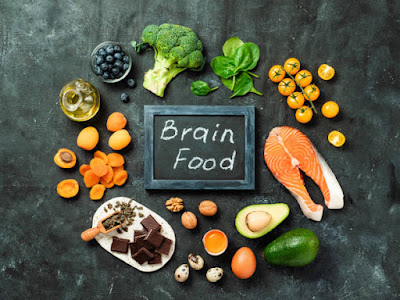IS IT POSSIBLE TO USE FOODS TO BOOST BRAIN HEALTH?
Is It Possible to Use Foods to Boost Brain Health?
At some point in our lives, we have all heard the phrase “brain food” thrown around in conversation. But have you ever stopped to wonder if there was any truth behind it? Is there actually food you can eat to boost brain health? With the ever-growing rise in the number of people developing and facing memory loss and dementia, the answer to this question becomes increasingly important.
Foods Boosting Brain Health
There is definitely some merit to the phrase “You are what you eat,” coined in theory by Anthelme Brillat-Savarin and Ludwig Andreas Feuerbach. Food definitely has a bearing on the state of our physical and mental health and well-being. It certainly isn’t a hopeless old wives’ tale. In fact, it is imperative that we all maintain a well-balanced diet.
If we want to improve brain health, what food items need to become a staple in our refrigerator and pantry? Here are five foods that can help increase brain health.
Fish
There is definitely some merit to the phrase “You are what you eat,” coined in theory by Anthelme Brillat-Savarin and Ludwig Andreas Feuerbach. Food definitely has a bearing on the state of our physical and mental health and well-being. It certainly isn’t a hopeless old wives’ tale. In fact, it is imperative that we all maintain a well-balanced diet.
If we want to improve brain health, what food items need to become a staple in our refrigerator and pantry? Here are five foods that can help increase brain health.
Fish
Our bodies cannot make the essential fatty acids (EFAs) that are needed to keep our organs functioning, bones strong and much more. This means we need to find a food source to make sure that we receive this vital source of fat. One of the best and most effective sources is oily fish, such as salmon, sardines, trout and herring. If you are not a fish fan, have allergies or practice a vegetarian lifestyle, don’t worry. Essential fatty acids, like eicosapentaenoic acid (EPA) and docosahexaenoic acid (DHA), can be found in plant sources: seaweed and algae. Also, pumpkin seeds, walnuts and flaxseed contain alpha-linolenic acid (ALA), which is a polyunsaturated omega 3 fatty acid and can be converted by humans to EPA and DHA. A study at the University of Iowa College of Public Health discovered a link between low levels of DHA and an increased risk of dementia. Therefore, we can assume that consuming fish and plant sources with high levels of EFAs can improve our brain health.
Eggs
This food group is known to have high levels of certain B vitamins, like B6, B12 and folic acid. These B vitamins they help to lower homocysteine (an amino acid) levels in our blood. When homocysteine is high, there’s an increased risk of not only having a stroke but also developing dementia. A research group at the University of Oxford put this concept to the test in a study. The results showed that after two years of having high levels of B6, B12 and folic acid, study participants experienced a lower rate of brain shrinkage versus those who were given a placebo.
Broccoli
Broccoli
This vegetable has high levels of vitamin K, which is known to improve brain health. Broccoli also is chock full of glucosinolate, which helps our nervous system work properly. Glucosinolate assists in keeping a neurotransmitter, acetylcholine, in our system so our memory doesn’t deteriorate. Studies have shown that Alzheimer’s patients have low levels of acetylcholine.
Sage
Sage
It also appears to halt the breakdown of the chemical messenger acetylcholine (ACH), which has a role in memory. ACH levels appear to fall in Alzheimer's disease. In one study, 39 participants with mild to moderate Alzheimer’s disease consumed either 60 drops (2 ml) of a sage extract supplement or a placebo daily for four months. Those taking the sage extract performed better on tests that measured memory, problem-solving, reasoning and other cognitive abilities.
In healthy adults, sage was shown to improve memory in low doses. Higher doses also elevated mood and increased alertness, calmness and contentedness. In both younger and older adults, sage appears to improve memory and brain function.
In healthy adults, sage was shown to improve memory in low doses. Higher doses also elevated mood and increased alertness, calmness and contentedness. In both younger and older adults, sage appears to improve memory and brain function.
Nuts
Nuts improve brain health as they increase a person’s intake of vitamin E. What’s so special about vitamin E? A steady dose of vitamin E could prevent a decline in memory. Therefore, brain health could be sustained with a diet of nuts, as well as other sources of vitamin E, like olives, leafy green vegetables and brown rice.
#brainhealth #brainfunction #memory #cognition #diet #nutrition #brainfood #health #beauty #wellbeing #wellness #fitness #fish #sage #vitamins #eggs #broccoli #nuts #Alzheimer #mentalacuity



Comments
Post a Comment